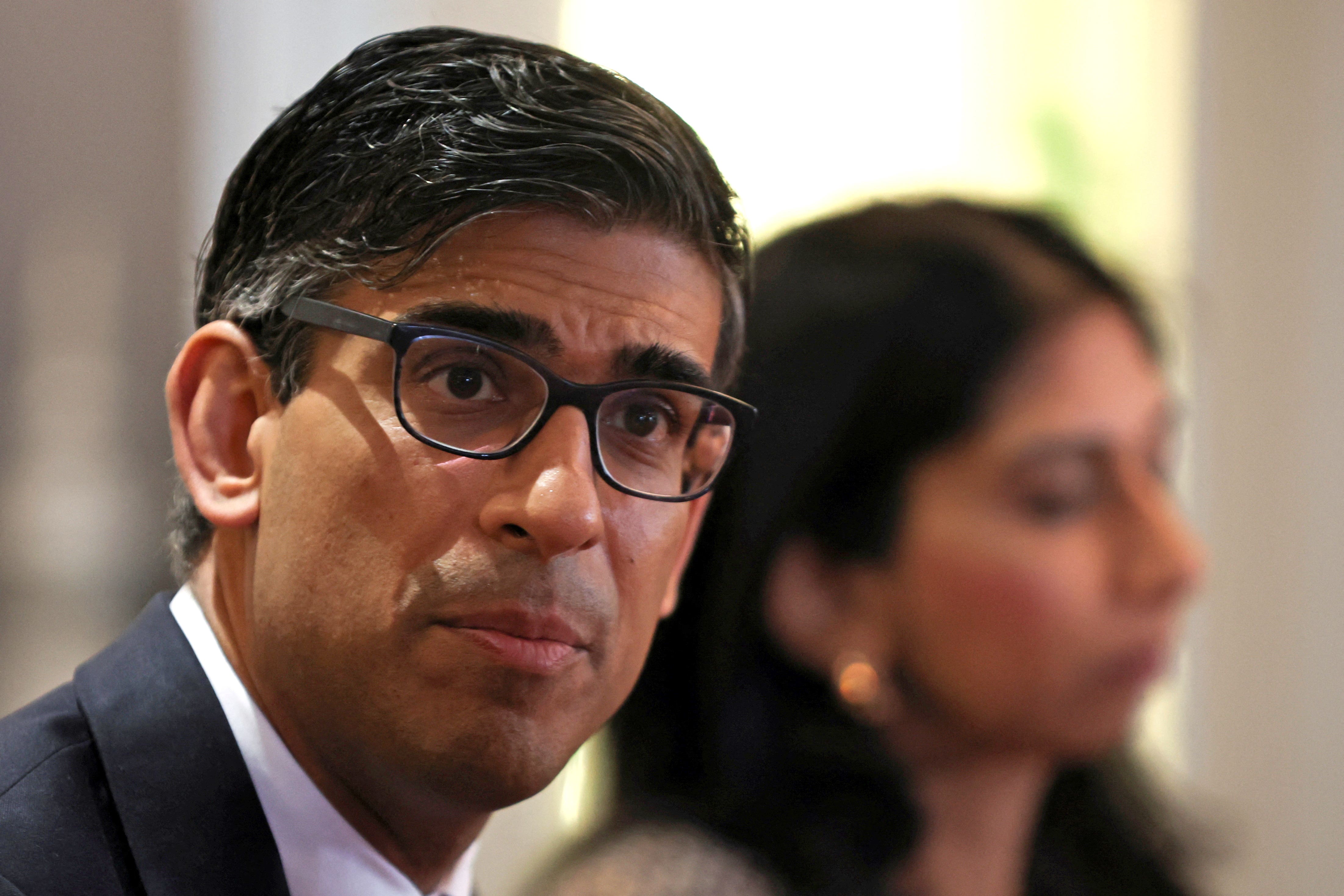Defeat over the Rwanda policy is a disaster for Rishi Sunak
Stop the boats. Halve inflation. Tackle NHS waiting lists. One by one, the prime minister’s promises are going up in smoke, writes John Rentoul


The appeal court ruling that the plan to deport asylum seekers to Rwanda is unlawful is a hammer blow against Rishi Sunak. He had staked his credibility on the argument that there is no other way to stop the boats coming across the Channel.
He thought he had a strong legal case, and the government won the day in the high court. Suella Braverman, the home secretary, posed for photos in front of the accommodation being prepared for asylum seekers in Rwanda. It looked as if the government might at least achieve take-off for one flight to Kigali, which, it hoped, might be cruel but would have the salutary effect needed to deter at least some of the boats.
But by a margin of two to one, the appeal court judges struck down the policy today, forcing the government to go to the Supreme Court. No one knows what the Supreme Court will decide, probably in October, but the damage to the prime minister and his home secretary has been done.
It means there is no chance – even assuming that the Rwanda policy could work – of “stopping the boats” by the end of this year, which is what Sunak promised in January.
And that means that the prime minister’s five promises are looking more fragile than ever. The NHS waiting list is lengthening; halving inflation will be touch and go; and still the boats keep coming.
Some commentators have suggested that Sunak and Braverman can turn the court defeat to their advantage by blaming “lefty lawyers” for the failure of their policy – but that does not work. Ministers cannot stoop to the Daily Mail’s level and call the two judges who found against them, Sir Geoffrey Vos, the Master of the Rolls, and Lord Justice Underhill, “enemies of the people”. They are the government: they make the law, and the courts enforce it.
If ministers think that the European Convention on Human Rights is wrong, they must repudiate it. Braverman clearly wants to do that, but Sunak has always pulled back from what might be called the “Belarus” option of becoming an international pariah.
Good for him, but even if he wanted to go down that road, he wouldn’t be able to – he would have to put withdrawal from the ECHR in the Conservative manifesto and win an election on it. Until that happens, there is no majority in parliament for such a drastic course of action – indeed, Alex Chalk, the cool Sunakite justice secretary, has just abandoned Dominic Raab’s “British Bill of Rights”, which was itself a rather timid attempt to curtail the European court’s powers.
Even if the Supreme Court decides in the government’s favour, it may be too late to save the prime minister. It should be obvious that each person removed is going to be the subject of legal action and that each one will be at a huge cost. The Home Office was finally forced this week to publish the estimated cost of removing asylum seekers to Rwanda, and it is £169,000 per head. The policy would pay for itself only if it succeeded in cutting small-boat arrivals by 37 per cent.
Whatever the Supreme Court decides, the policy is not going to work in the simple way that Sunak hoped.
Naturally, Labour is crowing over today’s court ruling, and politically it is justified in doing so. But Keir Starmer and Yvette Cooper, the shadow home secretary, must be alarmed in their private moments that this might soon be their problem. They know that the insoluble problem of small boats remains unsolved.
So far, Cooper has come up with a very New Labour five-point plan, which is enough to get her through TV interviews in which she is asked what Labour’s alternative is. But it boils down to cooperating more with the French government, and seeking agreement with the wider EU – something Sunak has already tried. A Labour government might be able to achieve more than the Tories, but Sunak has already capitalised on the departures of Boris Johnson and Liz Truss, and exploited his own good relations with Emmanuel Macron.
The critics of the Rwanda policy are celebrating today, but Sunak is entitled to ask what the alternative is. Starmer may soon find that he has to find an answer to that question.






Join our commenting forum
Join thought-provoking conversations, follow other Independent readers and see their replies
Comments